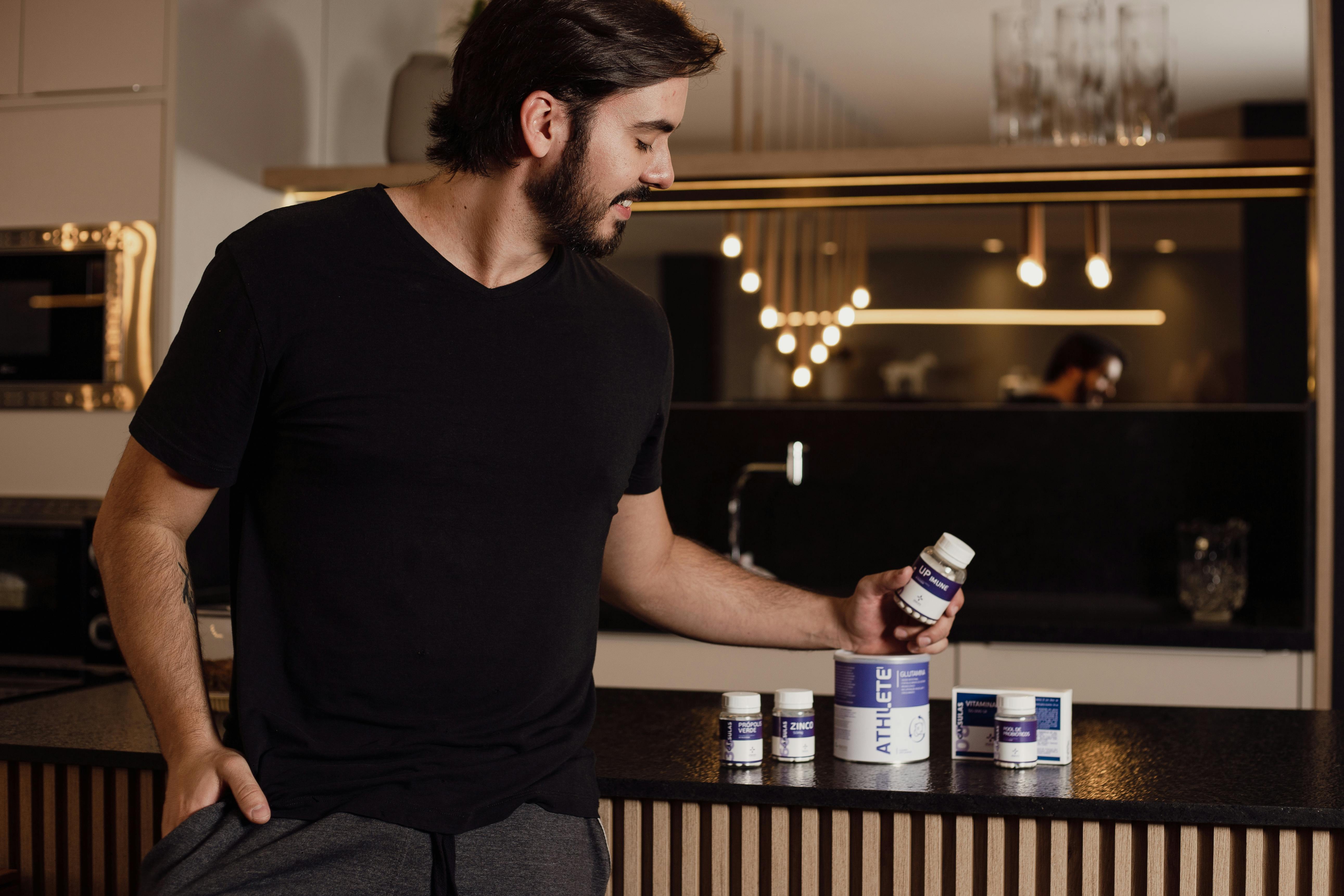Essential Guide to Lymphedema Diet: Improve Your Health in 2025

Essential Guide to Lymphedema Diet: Improve Your Health in 2025
Lymphedema is a condition characterized by swelling due to lymphatic system dysfunction. Adopting the right diet plays a crucial role in managing lymphedema symptoms and improving overall health. This guide explores the best practices in a lymphedema diet, addressing key food choices, nutritional strategies, and meal plans tailored for individuals dealing with this condition. Whether you are new to lymphedema management or looking for updated dietary recommendations, this essential guide will provide valuable insights and practical tips for healthier living in 2025.
Understanding the significance of a targeted lymphedema diet can help you minimize swelling, enhance lymphatic function, and maintain a healthy weight. By focusing on anti-inflammatory foods, low-sodium options, and other dietary considerations, you can better manage your symptoms and promote overall lymphatic health.
Throughout this article, we will cover the best foods for lymphedema, the importance of hydration, meal planning, and healthy recipes. Additionally, expert advice on supplements and herbal remedies will be included. Let’s dive deeper into each aspect of lymphedema nutrition to empower you with the knowledge necessary for a healthier future.
Choosing the Best Foods for Lymphedema Management
Building on the importance of a proper lymphedema diet, selecting the right foods can significantly impact symptom management. Choosing nutrient-dense, anti-inflammatory options can help reduce swelling and support overall health.
Top Anti-Inflammatory Foods
Incorporating anti-inflammatory foods such as fatty fish, leafy greens, nuts, and berries can combat inflammation associated with lymphedema. Omega-3 fatty acids found in salmon and walnuts are particularly beneficial, as they help to reduce swelling and promote lymphatic health. Additionally, foods rich in antioxidants, like berries and dark chocolate, can assist in repairing tissue and boosting the immune system.
Low-Sodium Diet for Lymphedema
A low-sodium diet is essential for lymphedema management. High sodium intake can lead to fluid retention, exacerbating symptoms. Opting for fresh, whole foods like fruits, vegetables, and lean proteins can minimize sodium levels in your diet. To enhance flavor without added salt, explore herbs, spices, and citrus-based seasonings.
Balancing Macronutrients
Maintaining a balanced intake of carbohydrates, proteins, and healthy fats is crucial. Focus on high-fiber grains such as quinoa and brown rice, along with lean proteins such as chicken and legumes, to promote fullness and stable blood sugar levels. Healthy fats from sources like avocados and olive oil can also support weight management and overall health.
Fruits and Vegetables for Lymphatic Health
Incorporating a variety of colorful fruits and vegetables not only enhances nutrition but also provides essential vitamins and minerals. Seasonal fruits can boost hydration, while vegetables like broccoli and carrots are rich in antioxidants. Aim for at least five servings of fruits and vegetables daily to bolster lymphatic function.
Hydration and Lymphedema: Why It Matters
With the fundamentals of food choices established, we turn our attention to the critical aspect of hydration. Adequate fluid intake is vital for supporting lymphatic health and managing lymphedema symptoms.
The Role of Hydration in Lymphedema Management
Hydration helps keep lymph fluid moving efficiently, which is crucial for individuals with lymphedema. Drinking water, herbal teas, and hydrating fruits like watermelon can enhance lymphatic circulation. Aim for at least eight 8-ounce glasses of water daily, adjusting based on personal needs and activity levels.
Drinking Herbal Teas
Herbal teas, particularly those made from ginger or dandelion root, can promote digestion and have anti-inflammatory properties. Ginger may help improve circulation, while dandelion root can support kidney function, assisting in toxin elimination. Integrating these herbal remedies into your daily routine can offer additional health benefits.
Avoiding Dehydrating Beverages
Certain beverages, like those high in caffeine or sugar, can contribute to dehydration. Limiting soda, energy drinks, and excessive coffee can improve hydration levels. Prioritize water and herbal drinks to support your overall wellness and lymphedema management.
Creating a Balanced Lymphedema Meal Plan
Having explored the food basics and the importance of hydration, let’s discuss practical application through meal planning. A well-structured meal plan can make it easier to stick to dietary guidelines and ensure balanced nutrition.
Sample Lymphedema Meal Plan
A sample lymphedema meal plan can assist in simplifying your daily food choices while ensuring nutritional needs are met. Breakfast could include oatmeal topped with berries and a sprinkle of flaxseeds. For lunch, consider a quinoa salad with an assortment of vegetables and grilled chicken, dressed with olive oil and lemon. Dinner might feature baked salmon with steamed broccoli and sweet potatoes. Healthy snacks can include cucumber slices with hummus or a small handful of mixed nuts.
Portion Control for Lymphedema
Portion control plays a significant role in managing weight and symptoms of lymphedema. Be mindful of portion sizes, focusing on filling plates with nutrient-dense foods while avoiding overeating. Utilizing smaller plates can help control serving sizes and prevent excessive calorie intake.
Timing Your Meals
Meal timing is another consideration when planning for lymphedema. Spreading meals and snacks throughout the day may prevent blood sugar spikes and promote better digestion. Aim for three balanced meals complemented by healthy snacks to maintain energy levels and prevent overeating.
Lymphedema-Friendly Recipes for Everyday Cooking
Following a lymphedema diet can be enjoyable with the right recipes. Preparing lymphedema-friendly meals doesn't have to be complicated. Let’s explore some delicious options.
Breakfast Ideas for Lymphedema
Start your day with nourishing breakfast options that align with lymphedema guidelines. Consider overnight oats made with almond milk, chia seeds, and topped with fresh fruit. Smoothie bowls packed with spinach, banana, and a scoop of protein powder can provide a healthy and refreshing start to the day.
Lunch Options That Satisfy
For a satisfying lunch, try a veggie wrap using whole grain tortillas filled with hummus, spinach, shredded carrots, and bell peppers. Another great option is lentil soup, which is not only filling but also rich in fiber and protein.
Dinner Recipes for All Tastes
When it comes to dinner, consider baked chicken breast coated in an herb mixture served alongside roasted Brussels sprouts and a quinoa salad. Alternatively, a zesty shrimp stir-fry with mixed vegetables and brown rice can be both nutritious and flavorful.

Expert Advice and Nutritional Supplements for Lymphedema
Expert advice plays a crucial role in successfully managing lymphedema through diet. Consulting with a lymphedema specialist can provide personalized insights into effective dietary changes.
Supplements for Lymphedema Management
While a balanced diet should provide most nutrients, some individuals may benefit from supplements. Discuss options such as vitamin D, omega-3 fatty acids, and herbal remedies with a healthcare professional. Supplements can aid in reducing inflammation and supporting lymphatic function.
Herbal Remedies to Consider
Herbs such as turmeric and ginger have shown promise in reducing inflammation and improving circulation. Incorporating these herbs into your meals or consuming them as supplements may provide added benefits in managing lymphedema symptoms.
Professional Support Options
Engaging with a registered dietitian or nutritionist experienced in lymphedema can greatly enhance your dietary approach. They can help create a personalized meal plan, identify potential food triggers, and offer ongoing support to ensure dietary adherence.

FAQs About Lymphedema Nutrition
As we wrap up this essential guide, here are some frequently asked questions regarding lymphedema nutrition and diet.
What are the Best Foods to Avoid with Lymphedema?
Avoiding white bread and processed foods high in sodium is key. Foods that contribute to swelling, such as those rich in sugar and unhealthy fats, should also be minimized.
How Can I Hydrate Properly While Managing Lymphedema?
Drink plenty of water daily and opt for hydrating foods such as cucumbers and watermelon. Herbal teas can also be a great addition to your hydration routine.
Are There Specific Supplements Recommended for Lymphedema?
Consult with healthcare professionals before taking supplements, as omega-3 fatty acids and vitamin D have been reported to support lymphatic health.
Eating with lymphedema can seem challenging, but by understanding the best practices and making informed dietary choices, it is possible to significantly improve overall health. Building a supportive diet fosters lymphatic function and can lead to more effective management of lymphedema.
To achieve optimal results, consider integrating the ideas discussed here into your daily routine. By doing so, you can promote health and enhance your quality of life. Taking these steps in the right direction is essential for managing lymphedema effectively in 2025.